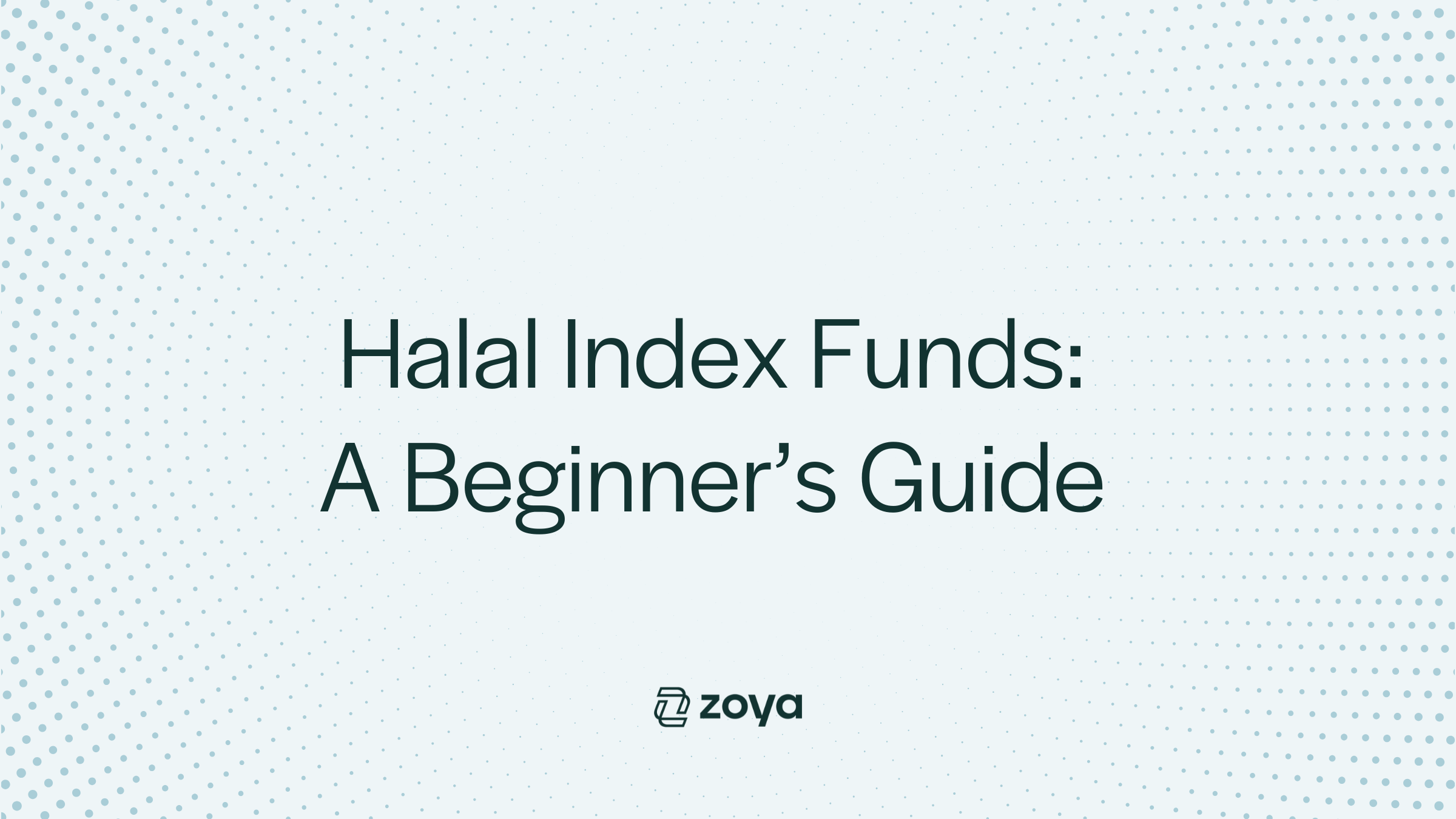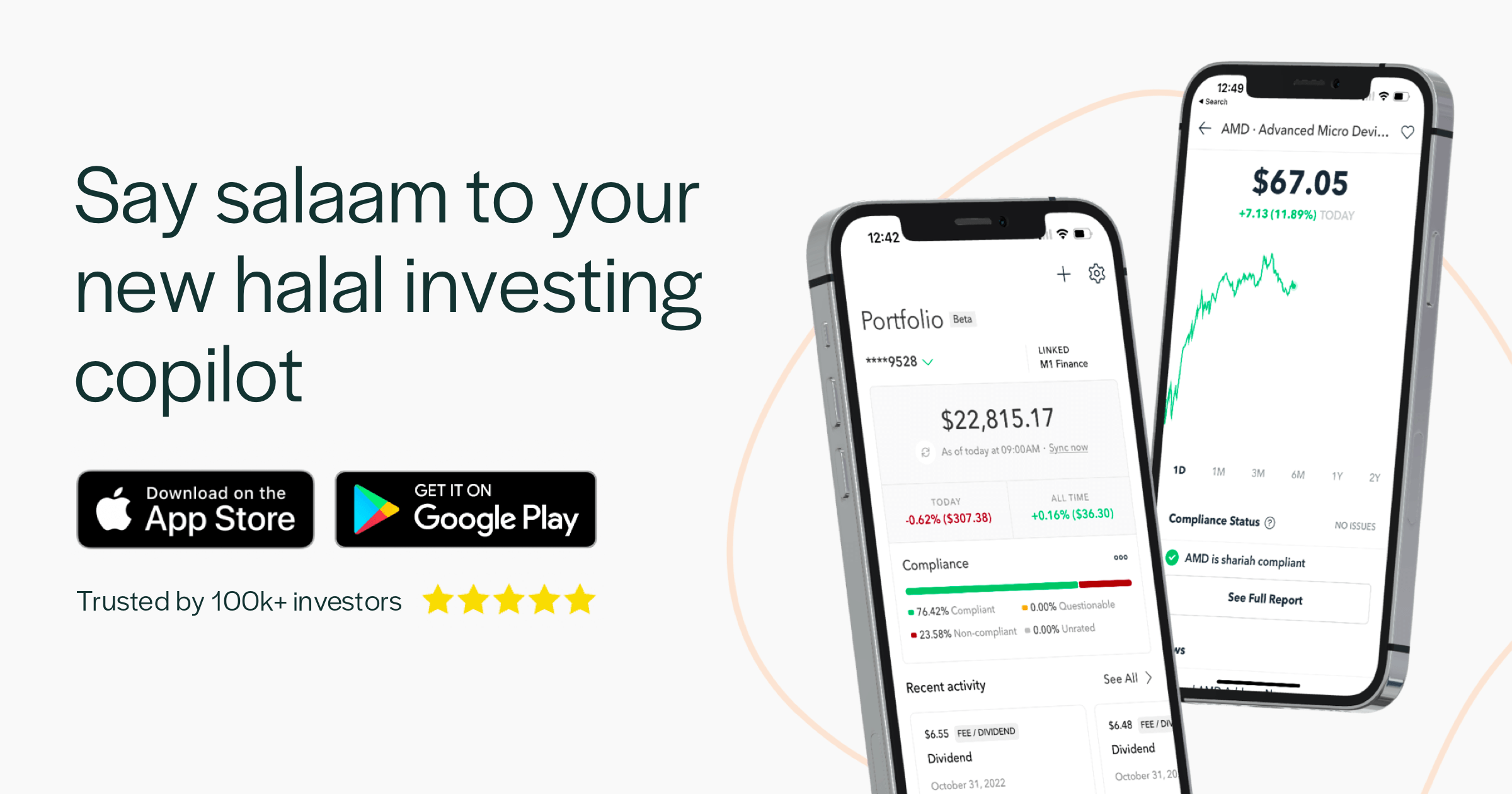Are Index Funds Halal? What You Need To Know

Index funds represent a cornerstone of modern investing, offering a simple way to gain broad market exposure. However, if you're wondering whether index funds can be part of your halal investment strategy, you're not alone. This question has become increasingly relevant as index investing continues to dominate the investment landscape, with over $13 trillion currently invested in index funds worldwide.
To answer this, we need to understand what index funds are, how they work, and whether they meet Islamic guidelines.

Zoya: Halal Investing App
Zoya makes halal investing easy by helping you build and monitor a shariah compliant investment portfolio with confidence and clarity.
What are index funds?
An index fund is an investment vehicle that aims to match the performance of a specific market index, like the S&P 500. Instead of picking individual stocks, these funds automatically invest in all or most of the securities within their target index.
Think of an index as a list of companies chosen based on specific rules. For example, the S&P 500 tracks 500 of America's largest publicly traded companies. When you buy shares in an index fund, you're essentially buying small pieces of every company in that list.
Index funds come in two main forms: mutual funds that trade once daily, and exchange-traded funds (ETFs) that trade throughout the day like stocks. Both types serve the same core purpose of tracking their target index as closely as possible.
Types of index funds
Index funds track different segments of the market, each serving specific investment goals. Here are the main types you'll encounter:
- Broad market funds: Track entire markets, offering maximum diversification (like total U.S. stock market funds covering 4,000+ companies)
- Market cap funds: Track companies based on their market value, from large established corporations worth hundreds of billions to small growing companies worth a few million.
- International funds: Invest in markets outside the U.S., including developed and emerging markets.
- Sector funds: Target specific industries like technology, healthcare, or real estate.
- Fixed income funds: Track bond markets, including government and corporate bonds.
- Specialty funds: Include dividend-focused, growth, or value-oriented strategies.
What makes an index fund halal?
An index fund is considered halal if it meets the specific requirements of Shariah compliance at both the fund and individual stock level.
- Fund structure: The fund must avoid leverage, margin trading, and short-selling. These strategies rely on financial mechanisms like interest-based transactions or speculative risk, which are prohibited.
- Stock selection: Companies in the fund must be screened for their business activities and financial practices. This includes avoiding prohibited industries and ensuring key financial ratios relating to debt and interest remain within acceptable limits.
- Ongoing compliance: The fund must regularly monitor holdings to ensure continued Shariah compliance. Non-compliant companies should be removed, weightings adjusted, purification amounts calculated, and the screening process clearly documented.
How to invest in halal index funds
When looking to invest in halal index funds, you have three main avenues:
1. Shariah-compliant ETFs
The simplest option is through ETFs that track an index of Shariah-compliant stocks. Popular options include:
- SP Funds S&P 500 Sharia Industry Exclusions ETF (SPUS)
- Wahed FTSE USA Shariah ETF (HLAL)
- iShares MSCI World Islamic UCITS ETF (ISWD/ISDW)
These funds typically have expense ratios between 0.40% and 0.65%, making them relatively cost-effective for halal investing.
2. Shariah-compliant mutual funds
While Shariah-compliant mutual funds are prevalent, most are actively managed rather than passively through an index. Actively managed funds involve higher fees but offer professional oversight. Some examples include:
- Amana Growth Fund (AMAGX)
- Azzad Ethical Fund (ADJEX)
- Iman Fund (IMANX)
3. Custom or direct indexing
You can build your own index-like portfolio using individual stocks. With Zoya, you can create and manage a diversified basket of Shariah-compliant stocks that mirrors your preferred market exposure. This approach offers maximum control over your investments and lets you:
- Choose exactly which stocks to include
- Adjust weightings as needed
- Monitor Shariah compliance in real-time
- Rebalance on your own schedule
Each option has its trade-offs in terms of cost, convenience, and control. ETFs offer the simplest solution, while custom/direct indexing provides the most flexibility.
Conclusion
As demand for halal investments grows, more Shariah-compliant index funds are likely to emerge. This increased availability, combined with the low costs, diversification, and simplicity of index investing, makes it an attractive option for investors of all sizes.
Frequently asked questions
Is there a halal index fund?
Yes, there are several halal index funds available for Muslim investors. These funds track Shariah-compliant indices or are specifically designed to adhere to Islamic investment principles.
Is the S&P 500 index fund halal?
The standard S&P 500 index fund is generally not considered halal due to the inclusion of companies involved in non-compliant activities. However, there are Shariah-compliant alternatives that offer similar exposure to the U.S. market while adhering to Islamic principles.
What is the best halal index fund?
The "best" halal index fund depends on your specific goals, risk tolerance, and geographic preferences. However, HLAL and SPUS are often considered top choices for U.S. market exposure.
Are all index funds halal?
No, not all index funds are halal. Only index funds that track Shariah-compliant indices or are specifically designed to be Shariah-compliant can be considered halal.
Can I create my own halal index fund?
Yes, it's possible to create a custom halal index-like portfolio using individual Shariah-compliant stocks. Platforms like Zoya can help you build and manage such a portfolio while ensuring ongoing Shariah compliance.
How often are halal index funds screened for compliance?
Halal index funds are typically screened for Shariah compliance on a regular basis, often quarterly or semi-annually, to ensure that all holdings continue to meet Islamic investment criteria.